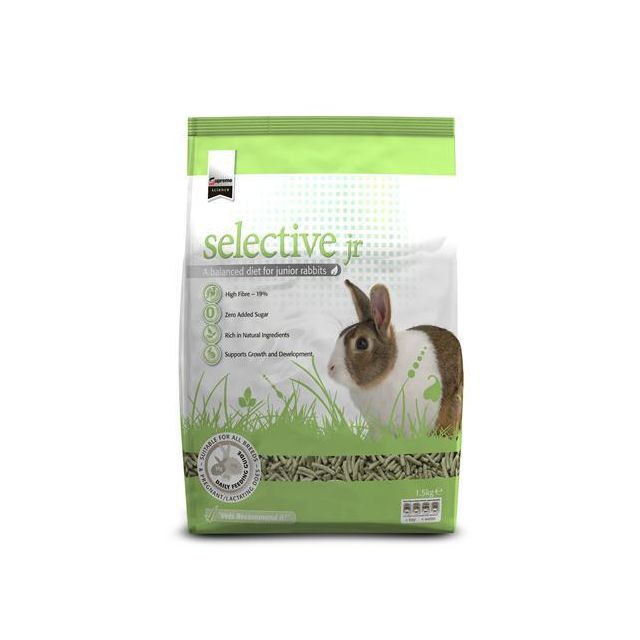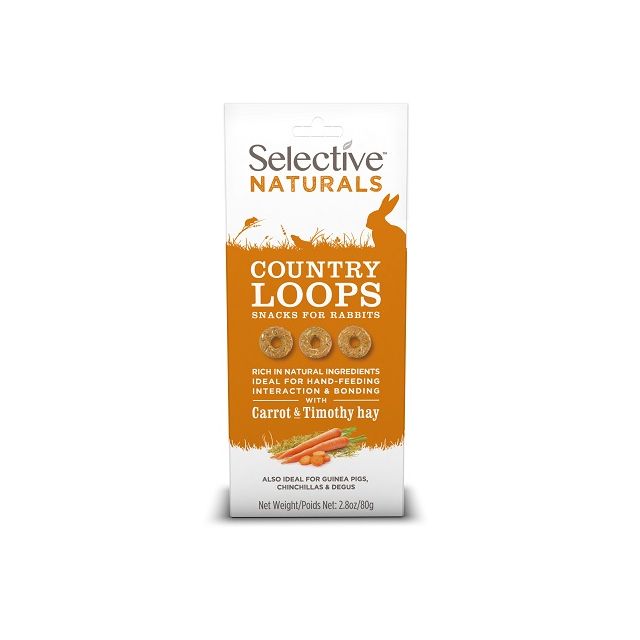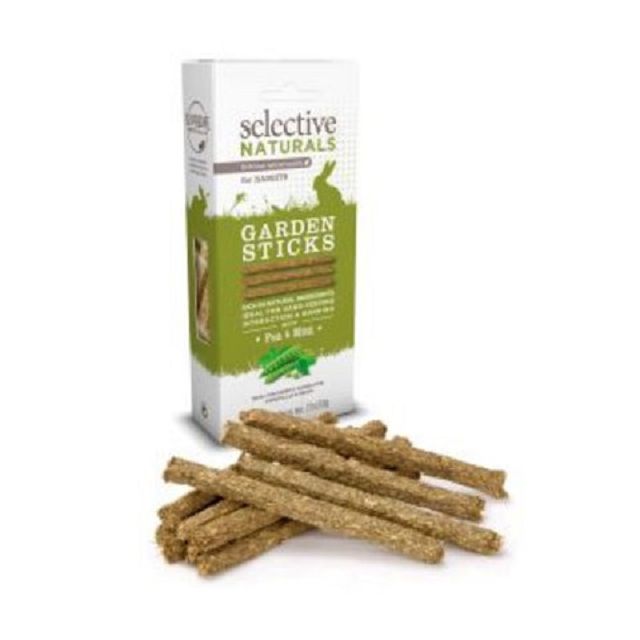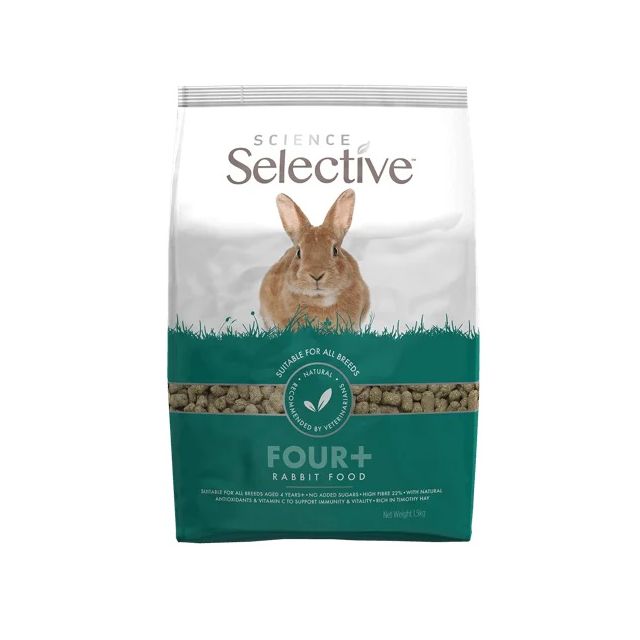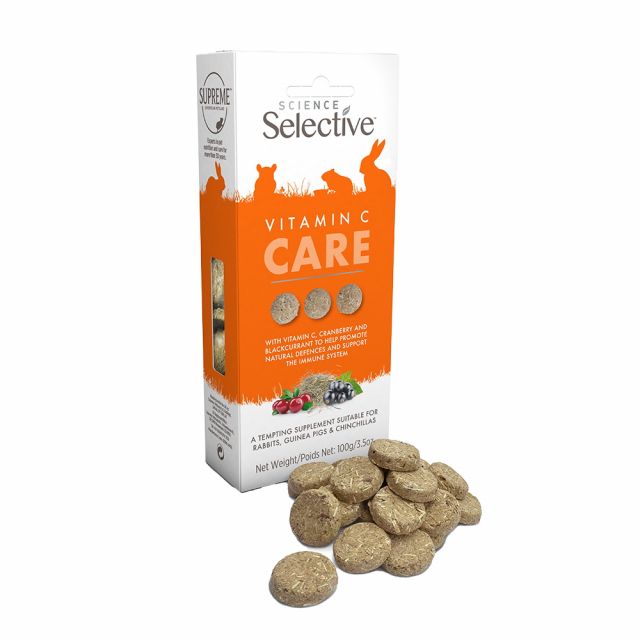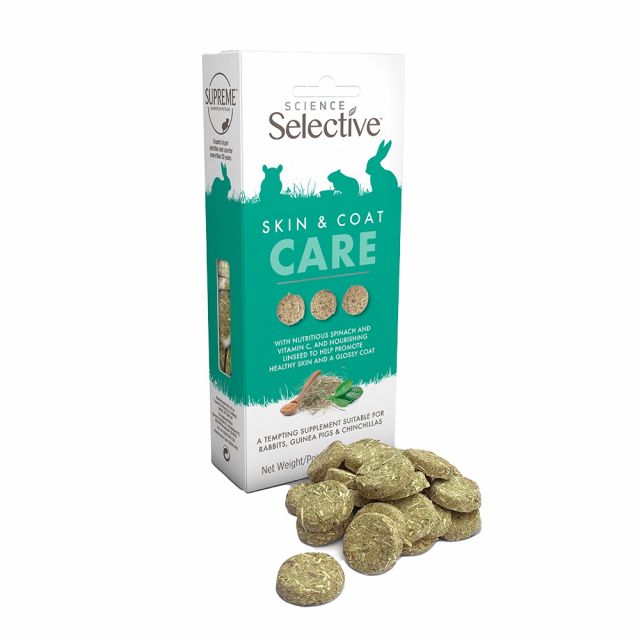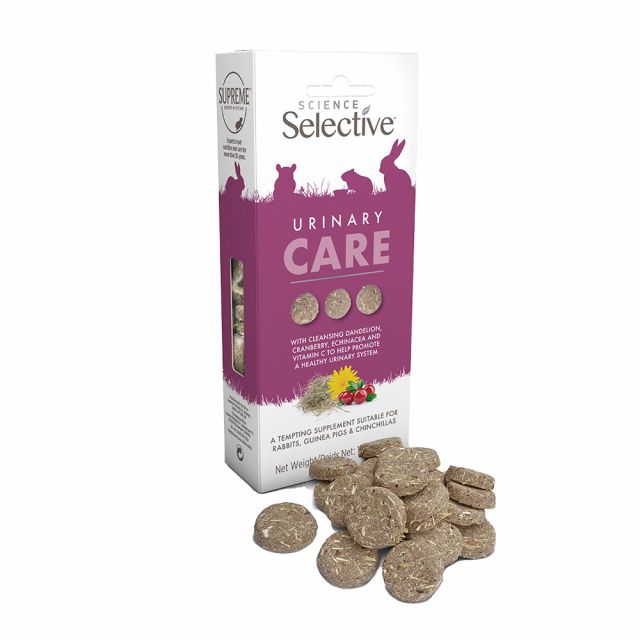Rabbit food
Rabbits are herbivores. This means that their diet is naturally very high in fiber and not rich in fat and sugar. Many health problems in rabbits are caused by incorrect nutrition. Many rabbits are fed diets that are too low in fiber and too high in sugar and fat. This can easily lead to obesity, bladder stones, and dental problems. Pharmacy4Pets has chosen Science Selective Rabbit Food. This is a natural, high-quality food specifically formulated to meet the dietary needs of rabbits. With carefully selected ingredients and the right balance of fiber, protein, vitamins, and minerals, this food helps keep your rabbit in top condition.
What should a rabbit's diet consist of?
Healthy nutrition is the foundation of a healthy rabbit. We are happy to explain what a healthy diet for rabbits consists of.
Hay
Hay is the most important part of a rabbit's diet and should always be available in abundance. Most rabbits eat a bundle of hay each day roughly the size of their body, and more is fine! Since rabbits can be quite picky, the hay must be of good quality. They prefer fresh, green hay. The hay should also be dust-free. To test this, you can stick your nose in the hay and take a deep sniff: if your nose itches, you need to sneeze, or if the hay smells musty, it is not suitable for your pet.
Water
Fresh water must always be available. If you use a water bottle, check daily to make sure the spout is not clogged and that there is still enough water in the bottle. Water bowls should be heavy enough that your rabbit cannot accidentally knock them over.
Pellets
Pellets provide the vitamins, minerals, and other nutrients that may be lacking in other foods. A high fiber content in pellets is important for wearing down their constantly growing teeth and keeping their digestive system healthy. Rabbits are picky and will often choose the seeds or grains they like from mixed foods, which can lead to an imbalanced diet. By choosing a 'pellet food', where all the pellets are the same, you ensure that your rabbit gets everything in the right proportions. Be sure to give no more than the amount indicated on the packaging to prevent obesity.
Science Selective Junior Rabbit Food is specifically developed for young rabbits (from 4 to 20 weeks). It contains additional protein to optimally support growth and development.
For your adult rabbit, Science Selective Rabbit Food is suitable. It has a high fiber content for dental and digestive health and a limited calorie content to prevent obesity. The texture of the pellets supports the natural wearing down of the teeth.
If your rabbit is older than four years, its nutritional needs change. Science Selective Four+ Rabbit Food is specially formulated for older rabbits. This Science Selective rabbit food includes a balanced calcium and phosphorus ratio, adjusted to the changing needs of your older rabbit.
Green Leafy Vegetables
A small handful of leafy vegetables is a welcome addition to a rabbit's daily diet. However, not all vegetables are suitable. Gassy vegetables such as cabbage and leeks can make your rabbit very ill. But a little endive, dandelion leaves, a small piece of chicory, or a small piece of carrot will make your rabbit happy. Always introduce vegetables gradually; sudden changes in diet can lead to stomach aches and diarrhea. Fruit contains a lot of sugar and is therefore not ideal for rabbits and should be given only in very limited amounts.
Snacks
Hand-feeding snacks is good for building a bond with your rabbit. You can also teach your rabbit tricks using something it particularly enjoys. Unfortunately, snacks often contain many unhealthy nutrients such as high sugar or fat content. Bread is also commonly used as a treat for rabbits. Although most rabbits find it very tasty, bread is not good for rabbits and should only be given in very limited amounts. Science Selective offers healthy, high-fiber snacks without artificial colors, flavors, or added sugars. Choose for example Selective Naturals Country Loops or Science Selective Naturals Garden Sticks.
Food for Sick Rabbits
Because rabbits are herbivores, they eat small amounts throughout the day. Not eating or eating significantly less is therefore much more alarming in rabbits than in dogs, for example. Even after just a few hours without food, the intestines can stop moving, making your rabbit feel even worse and completely unwilling to eat. If you notice that your rabbit is eating less or refusing a certain part of its diet like hay or pellets, or if you notice that your rabbit is pooping less or that the droppings are changing in size or consistency, this is ALWAYS a reason to consult your veterinarian.
Since it is so important that your rabbit continues to eat, it is advisable to start feeding a non-eating rabbit (that does NOT have an obstruction of the stomach or intestines). Science Selective Recovery is a liquid food for sick or recovering rabbits. The Recovery food can be administered with a handy feeding syringe. Science Selective Urinary Health from Supreme is a daily food for rabbits that supports the urinary tract. Because the food is very high in fiber, it also encourages regular drinking.
Pharmacy4Pets helps you take the best care of your rabbit. If you have any questions about our products or about your rabbit's diet, please contact us.

